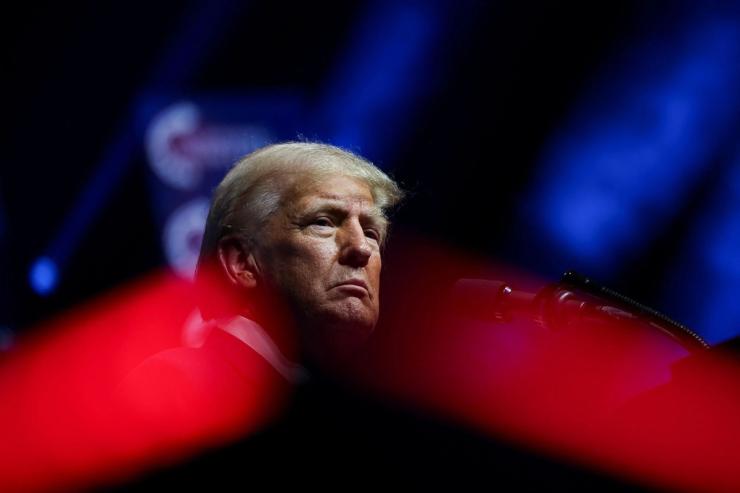The News
With the US presidential election less than two weeks away, European leaders are scrambling to prepare for Donald Trump’s possible return to the White House, and a potentially seismic shift in trans-Atlantic relations.
Tensions are already flaring: The Republican nominee described the EU — Washington’s largest trade and investment partner — as a “mini China” on Thursday, cementing European officials’ fears that a second Trump administration would pursue an even harder line on trade relations with the bloc.
SIGNALS
The EU plans to inflict pain quickly and force Trump to the negotiating table
The EU has contingency plans in place to prepare for the fallout from the presidential election, including a rapid reaction task force colloquially referred to as the “Trump task force.” The bloc was left largely on the back foot when Trump imposed tariffs on steel and aluminum during his first term, but now leaders’ thinking is to “hit back fast” and “hit back hard,” one senior European diplomat told Politico. Rather than allow relations to deteriorate into a tit-for-tat spiral, the EU hopes to inflict so much pain at the get-go that Trump is forced to the negotiating table: “He’s a dealmaker at heart,” another diplomat said, and there’s hope the parties could unite over the importance of taking on China.
…But taking on China could also hurt Europe
There’s bipartisan consensus in Washington on reducing trade with China, and the EU is largely on board — but Europe’s more trade-intensive economy means it also risks becoming “collateral damage” in the US-China economic rivalry, two experts argued for the Centre for European Reform. Many European firms have made significant investments in China, and cheap Chinese goods have contributed to lower prices amid continent-wide concerns about purchasing power, meaning the EU needs to be more “selective” in its approach to Beijing to avoid an all-out trade war, they wrote. The US wants to manage without China, while the EU wants to “de-risk, but not decouple,” an official told the South China Morning Post.
The EU needs to maintain a united front — which could be more difficult with Trump in power
The EU is worried that a second Trump presidency plans to negotiate a deal with Russian President Vladimir Putin on Ukraine that would leave other European countries vulnerable to renewed aggression from the Kremlin, the president of International Crisis Group noted. But regardless of who takes the White House, the EU will need to take responsibility on security and foreign policy matters, he argued. Far-right parties have entered government in seven EU member states, however, so a Trump win could make it even more difficult to maintain that united front, he added. Still, figures like Hungary’s Viktor Orban should be careful what they wish for, a columnist argued in The New European: A US-EU trade war will have “unwelcome consequences” on the continent, and may wind up accelerating European integration.


